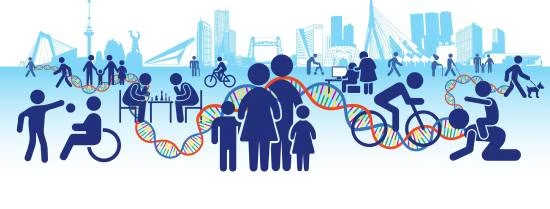What does this study entail?
The field of genomics is an arena for fast technological developments that impact society. For instance, in recent years, genomic scientists have not only unravelled the human genome, but also developed the technology to rewrite it. As the genome may be analysed in-depth, big data are generated that may provide individuals and families with knowledge about their genetic susceptibilities that could be targeted for disease prevention. Whereas from a governance and health-care system perspective prevention may sound like a blessing, the psychological challenge of having to live with the threat of a genetic disease to one-self and family members, however, is often a significant burden. Moreover, offering genomic knowledge to all for prevention purposes presents with numerous societal challenges such as financing, privacy, scalability and regulation.
Technically, we are able to create organs from stem cells, and we can even create so-called ‘chimeras’ to research gene therapy. We could even create human embryos to research early eradication of hereditary diseases. From an ethical perspective we could wonder whether the life of an embryo created from stem cells is worth less than one created from a fertilized egg. Also, the values in society regarding the question whether it should be allowed to produce embryos from stem cells are broad; ranging from fundamental objections against to ethical obligations in favour. The genomics field also faces issues of diversity and inclusion as most big databases that are used as reference in genetic diagnostics and research lack diversity. To solve this, professionals such as researchers, policy makers, advisors etc. need skills to build bridges and insights to navigate societal issues such as inequity and cultural differences.
These examples, and many more that are not described here, illustrate that genomic research needs to be aligned with the needs and values of society, so-called ‘societal alignment.’ The technological advances in genomics are well ahead of what our society is ready for. We have not negotiated the conditions in which we as a society agree with the use of gene editing technology to repair severe hereditary disease in embryos, if at all. Nor have we agreed on the purpose and terms to open the gates to reading into the genome of all instead of only those with an indication. Yet, technological developments are evolving at lightning speed. The field of genomics is therefore in urgent need of professionals who are trained to work with the research for impact paradigm.
What is impact research?
Research for impact refers to a research paradigm that takes research output a few steps beyond the publication of results in a scientific journal. It is characterized by the involvement of societal stakeholders throughout the research cycle, starting as early as the research question. Involving societal stakeholders requires identifying who the stakeholders are, and to consult with them in addition to scientific sources to gain a deep understanding of an issue. Impact research acknowledges that in order for scientific results to lead to change the results need to reach the stakeholders, those who need to change their approach as well as those in the position to change processes and perhaps even regulation. It is typical for impact research to analyze the dynamics of influence and power, and to aim to build capacities among stakeholders. Here you can find a number of illustrative examples of impact research, in which our educational program is involved.
In summary, Genomics in Society is a new interdisciplinary research domain that requires specialized researchers and professionals. They need to be equipped to work in an interdisciplinary context, think critically and constructively about the societal and ethical aspects of genomics, and contribute to a positive impact of genomics in society.
Are you curious about our students' experience with the Research Master in Genomics in Society? Click here to discover more.
Interdisciplinary synergy
In order to achieve an interdisciplinary profile we admit students from both biomedical as well as social sciences study directions. This variety in backgrounds enriches the program, and allows this multidisciplinary group of students to achieve synergy, as well as develop an interdisciplinary research language.


